
Ike & Tina Turner was an American musical duo consisting of husband-and-wife Ike Turner and Tina Turner. From 1960 to 1976, they performed live as the Ike & Tina Turner Revue, supported by Ike Turner's band, the Kings of Rhythm, and backing vocalists, the Ikettes. The Ike & Tina Turner Revue was regarded as "one of the most potent live acts on the R&B circuit."
Trapeze were an English rock band from Cannock, Staffordshire. Formed in 1969, the band originally featured former The Montanas members John Jones and Terry Rowley (keyboards), and former Finders Keepers members Glenn Hughes, Mel Galley and Dave Holland (drums). Jones and Rowley left the band following the release of their self-titled debut album in 1970, with the lineup of Hughes, Galley and Holland continuing as a trio. After the release of Medusa later in 1970 and You Are the Music... We're Just the Band in 1972, Hughes left Trapeze in 1973 to join Deep Purple.
Philles Records was an American record label formed in 1961 by Phil Spector and Lester Sill, the label taking its name from a hybrid of their first names. Initially, the label was distributed by Jamie/Guyden in Philadelphia. In 1962, Spector purchased Sill's stock to become sole owner at 21 years of age, America's youngest label chief at the time.
Sue Records was also the name of a Louisiana-based record company which owned Jewel Records.
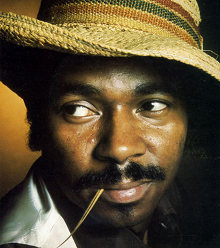
Van Allen Clinton McCoy was an American record producer, arranger, songwriter and singer. He is known for his 1975 internationally successful hit "The Hustle". He has approximately 700 song copyrights to his credit, and produced songs by such recording artists as Brenda & the Tabulations, David Ruffin, The Stylistics, The Presidents, Faith, Hope & Charity, New Censation, Gladys Knight & the Pips, Aretha Franklin, Peaches & Herb, Lesley Gore, and Stacy Lattisaw.
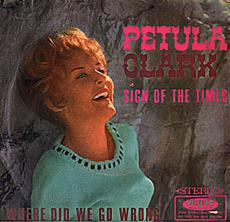
"Sign of the Times", also known as "A Sign of the Times", is a song performed by Petula Clark, featured on her album My Love and released as a single in March 1966. It was the follow-up to her #1 US hit "My Love," the title track from the aforementioned album, and it continued her association with writer/producer Tony Hatch and songwriter Jackie Trent. However, "Sign of the Times" had a more percussive sound than had been evident in Clark's previous singles, or that become evident in her later ones.

Anita Jean Kerr was an American singer, arranger, composer, conductor, pianist, and music producer. She recorded and performed with her vocal harmony groups in Nashville, Los Angeles, and Europe.
Robert Alan Krasnow was an American record label executive and entrepreneur who had a long and successful career in the music industry. He founded Blue Thumb Records, later became chairman of Elektra Records, and was a co-founder of the Rock and Roll Hall of Fame.
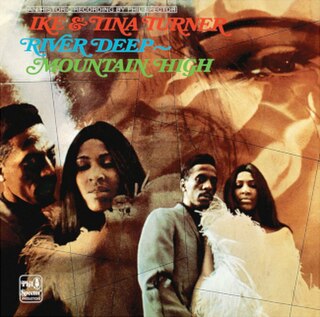
River Deep – Mountain High is a studio album by Ike & Tina Turner. It was originally released by London Records in the UK in 1966, and later A&M Records in the US in 1969. In 2017, Pitchfork ranked it at No. 40 on their list of the 200 Best Albums of the 1960s.
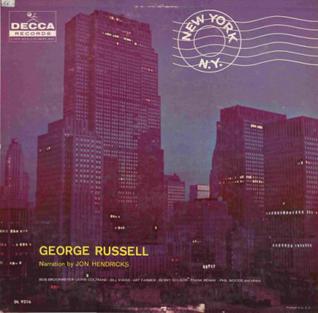
New York, N.Y. is an album by George Russell, originally released on Decca in either July or August 1959.

Jan Howard Sings Evil on Your Mind is a studio album by American country artist Jan Howard. It was released in July 1966 by Decca Records and was her second studio album. The project consisted of 12 tracks featuring both uptempo and ballad material. Its title track was a top five US country song in 1966 and was one of four singles on the album. Another was the charting 1964 song "What Makes a Man Wander?". The album itself made the US country survey following its release and received critical reception from Cash Box magazine.
A record club was a mail-order music subscription service. It was adopted and implemented by the major record labels in the 1950s for selling phonograph records and prerecorded reel-to-reel tapes. The labels later expanded their offerings to 8-track tapes, cassette tapes, and compact discs. The clubs dwindled to a close by 2010.
Hecht-Lancaster & Buzzell Music, Inc. was an American music publishing company founded by film producer Harold Hecht, his brother-in-law Loring Buzzell, and Hecht's business partner, actor/producer Burt Lancaster.
"Come Tomorrow" is a song written by American songwriters Bob Elgin, Dolores Phillips and Frank Augustus for rhythm and blues singer Marie Knight, who issued it as a single in October 1961 through Okeh Records, a release which received good reviews, though failed to chart. The best known version of the song was recorded by British pop band Manfred Mann, who took it to the top-ten in the United Kingdom in 1965.
Ed Chalpin was a record executive and producer. He is most remembered for his association with Curtis Knight and the Squires which caused problems for Jimi Hendrix throughout his career. Chalpin is responsible for the recordings from that period, some of which appear on You Can't Use My Name: The RSVP/PPX Sessions.
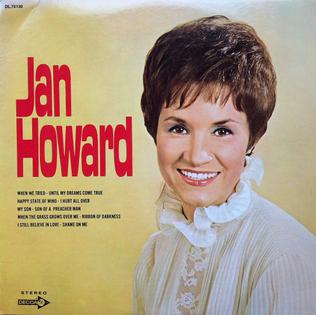
Jan Howard is a studio album by American country artist Jan Howard. It was released by Decca Records in June 1969 and contained ten tracks. The project contained a series of cover tunes, along with new songs. Among the new recordings were three singles: "I Still Believe in Love", "My Son" and "When We Tried". "My Son" was a letter Howard put to music written to her son who was killed in the Vietnam War. The album was given positive reception by Cash Box and Record World magazines. The album made the US country albums and its three singles reached positions on the North American country songs charts.
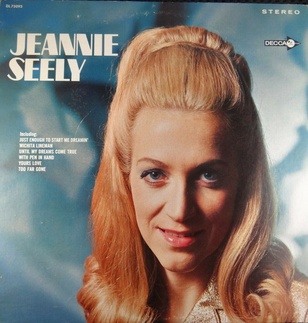
Jeannie Seely is an eponymous studio album by American country artist Jeannie Seely. It was released by Decca Records in April 1969 and was her fifth studio album. The 11-track collection featured songs written by Hank Cochran and others. Many of the songs were cover tunes, with some exceptions such as "Just Enough to Start Me Dreamin'". The latter was the album's only single and made an appearance on the US country chart in 1969. The eponymous release was Seely's first for the Decca label and received reviews from Billboard, Cash Box and Record World magazines.
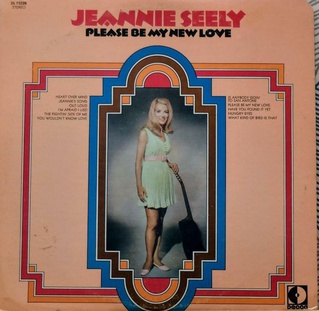
Please Be My New Love is a studio album by American country artist Jeannie Seely. It was released by Decca Records in July 1970 and was the seventh studio album in her career. The record consisted of 11 tracks, including a medley of cover tunes called "Jeannie's Medley". The latter tune and the title track were both released as singles originally. Please Be My New Love was given positive reviews by Billboard and Cash Box magazines.
Loring Bruce Buzzell was an American music publisher and record label executive. Together with film producer Harold Hecht and actor Burt Lancaster, he formed a series of music publishing imprints in the middle and late 1950s. His music publishing companies, Hecht-Lancaster & Buzzell Music, Calyork Music, Leigh Music and Colby Music, were responsible for copyrighting, publishing and promoting the soundtracks and theme songs from such notable films as Marty, Trapeze, The Kentuckian, Sweet Smell of Success, Separate Tables, Cry Tough, Take a Giant Step and The Unforgiven. Buzzell's companies also published "May You Always", the recordings of which by The McGuire Sisters for Coral Records and Joan Regan for HMV Records, became the top-selling records and the second-best-selling sheet music in the United States and the United Kingdom for 1959. Calyork Records and Maine Records were two independent record labels operated by Buzzell in partnership with Hecht and Lancaster.
Mike Collier was an A&R man, record producer, composer and record label founder. He founded the Collier, Feelgood, Flamingo and Sugar labels. The artists he worked with include The Isley Brothers and The Echoes.










